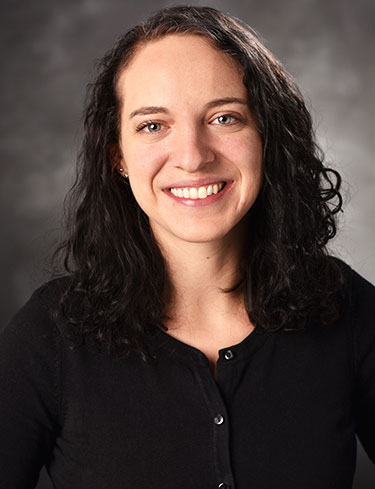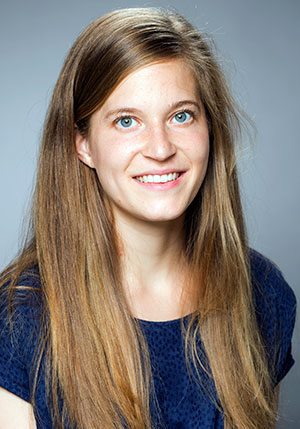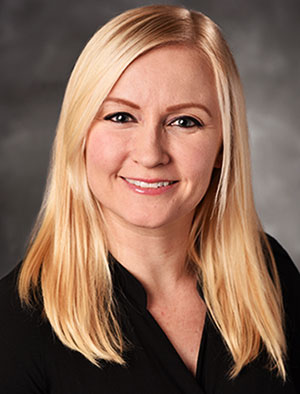Student Profiles
Sarah Axelrath
A future helping the homeless, prisoners and those with substance abuse issues
 (May 2017) Sarah Axelrath’s one-year break between a bachelor’s degree and medical school turned into two when she chanced into a job working with intravenous drug users.
(May 2017) Sarah Axelrath’s one-year break between a bachelor’s degree and medical school turned into two when she chanced into a job working with intravenous drug users.
While preparing to apply to medical school, she became a case manager with [SA1] Community HealthCorps in Lakewood. For a year, she helped homeless clientele access health care, Social Security benefits, mental health services, food banks and crisis care.
Axelrath also volunteered once a week at the Harm Reduction Action Center [SA2] in Denver, working with homeless injection drug users, many with untreated medical issues and a distrust of the health care system.
“I fell in love with that, too, so I badgered a manager for a full-time job there and deferred my acceptance at CU for a year.”
Axelrath, the daughter and sister of psychologists, had long been interested in social justice work, one of the reasons she attended Oberlin College in Ohio for her undergraduate degree. In a town famous as a stop on the Underground Railroad, the college offered Axelrath the freedom to fashion a gender studies major.
“I had the foresight to know that this might be the last opportunity I would have to study social studies and humanities – to try to be a more well-rounded person,” she said. “I have not regretted it for a second. It opened my eyes to the way the world has always been, for better or worse.”
After starting medical school in 2013, Axelrath, a member of the CU-Unite urban care track, continued to volunteer at the Harm Reduction Action Center, often persuading classmates to join her.
In 2014, she was invited to attend a week at the Betty Ford Center in California to study the pathophysiology of addiction and evidence-based treatments. In her fourth year, she took part in an away rotation at Montefiore Medical Center, working at a methadone clinic in the South Bronx, and at Rikers Island jail to establish a Suboxone clinic for prisoners suffering from opioid withdrawal.
“It wasn’t as scary as I thought it might be, but it was a little scary,” says Axelrath, who also describes the experience as “super interesting, intense and eye-opening.”
She became convinced that she wanted to continue working with the homeless, prisoners and patients with substance use disorder.
“Honestly, I think of it as a continuum of care. The homeless are in violation of the law just by being publicly homeless. Add to that substance abuse and they are always at risk of going to jail. That’s where they get their medical care and mental health care … You can follow a person through the revolving door, the street, the hospital, jail, back and forth and back and forth. It’s the same people but different settings.”
Axelrath, 28, witnessed firsthand the changes the Affordable Care Act made between 2011 and 2012 when she was working as a case manager. The first year, many homeless adults with substance use disorder could not qualify for health care. But, in 2012, her job changed dramatically because suddenly more people became eligible for Medicaid. She realizes that many of these patients will not be able to pay for her services when she becomes a physician if they lose access to affordable healthcare coveragein the coming years
“I can’t hang up a shingle and expect homeless folks to come see me. I’m nervous. I’ll need help from the political side of things to make my career even possible. Otherwise my skills are worthless. I’ve gone to medical school for nothing.”
She was pleased that her passion for the underserved was well received during her residency interviews.
“I’m certain that the only reason I got positive feedback on the interview trail was because of my interest in the homeless and substance use disorders. That’s what set me apart from other applicants. With opioid abuse and overdose sweeping the nation and impacting record numbers of people and families from all socio-economic categories, my interest is very timely. There was a lot of enthusiasm on the trail.”
She credits her mentors at CU and elsewhere for helping her refine and retain her interest in underserved communities. She advises incoming medical students to seek support.
“Work hard to figure out what it is about medicine that is going to make you happy for the next 60 years and find good mentors to take you under their wing and teach you everything they can. Grab it and don’t let go. Don’t let anyone talk you out of it. People love their own specialties, and they like to try to recruit you into that specialty. They mean well, but once you set your sight on something, double down on it. Hold on tight. It will get you through tough challenges.”
Axelrath will serve her primary care residency at Massachusetts General, her first choice because on her interview day she met residents who were working in jails and needle exchange programs.
“They pulled out all the stops and let me know that there’s room in residency to do work that is important to me. They introduced me to people who were actually doing it so I could imagine what it would look like.”
Amy Beeson
'It’s powerful to see people getting better over days, weeks, and months'
 (May 2017) In Peru, Amy Beeson’s uncertainty about a career in medicine fell aside while she worked in the impoverished outskirts of Lima.
(May 2017) In Peru, Amy Beeson’s uncertainty about a career in medicine fell aside while she worked in the impoverished outskirts of Lima.
While there, Beeson helped with after-school classes, taught children to swim, and participated in research with tuberculosis and HIV patients with Partners in Health. By the end of her year in South America, Beeson was certain that she wanted to work to improve health care delivery, “particularly for the most marginalized communities.”
Beeson entered CU School of Medicine in 2012. During her third year rotations at Denver Health, she again saw patients struggling with health care access, and she decided she wanted another opportunity to take part in global health delivery research before she entered residency training.
In 2015, Beeson applied for a Doris Duke International Clinical Research Fellowship, imagining a return to Latin America. Instead, the foundation offered a spot in KwaZulu-Natal, South Africa.
There, she lived for a year on a rural hospital compound and worked with community health workers at a local non-governmental organization, a role that was familiar from her time in Peru where such workers are known as promotoras.
The community health workers performed home-based screening for a variety of common illnesses and accompanied neighbors, friends and family, particularly those with chronic and complex illnesses, to clinic. They also helped to address the barriers that families face, such as the fear of stigma, and educated patients about disease prevention and treatment.
“It’s a model I really love,” said Beeson, 28, who received a bachelor’s degree in social studies from Harvard College in 2010. “I think we ask far too much of people with chronic diseases. To get to clinic in South Africa, some walk all day, in some cases maybe tens of kilometers. They spend whole days waiting in line. Sometimes they’re told to wait in a separate line if they have HIV. In contrast, community health workers knock on the door and offer a listening ear, essential preventive care, and accompaniment.”
Beeson witnessed cases of patients with advanced disease that she knew could have been prevented with earlier interventions.
“By adopting a patient-centered approach, you hope to reach people earlier and prevent that nadir. To me, that’s the best kind of medicine.”
She also witnessed the power of antiretroviral and anti-tuberculosis medicines to reverse the course of a disease.
“It’s powerful to see people getting better over days, weeks, and months.”
She feels pulled to return to South Africa, where she found mentors who have worked with the community for decades. “They are just incredibly resilient and dedicated and have a very broad base of skills. They’re a great inspiration.”
“But wherever I’ve been last is where I want to go back and work,” she says with a laugh. “I’m not certain where I’ll end up in the long term.”
The next few years are settled. Beeson, a Gold Humanism inductee and 2016 recipient of the St. Geme Medical Student Award for Outstanding Research in Pediatrics, will serve her residency in the University of Colorado School of Medicine’s Combined Internal Medicine-Pediatric Residency Program.
“I was one of those people who liked everything in third year. But I am hopeful that med-peds training will be good preparation to work in low-resource setting, whether in the Southwest (U.S.) or internationally. Ideally, I would like to partner with communities to provide primary care for children and adults living with HIV and other chronic diseases.”
Veronica Searles Quick
Studying evolution - from coral reefs to psychiatric diseases
 (May 2017) During her seven years at CU School of Medicine pursuing an MD and PhD, Veronica Searles Quick occasionally daydreamed about an alternate life.
(May 2017) During her seven years at CU School of Medicine pursuing an MD and PhD, Veronica Searles Quick occasionally daydreamed about an alternate life.
“I’d think ‘I could be scuba diving in the South Pacific instead of reading notes at 2 in the morning,’” she says with a laugh.
Before entering the CU School of Medicine’s Medical Scientist Training Program in 2010, Searles Quick studied evolution – mainly of coral reefs. She’d become intrigued with evolutionary studies in high school during a course in environmental conservation.
After earning undergraduate degrees in 2007 in marine biology and international relations from Brown University, she worked from 2007-08 at Brown’s Center for Alcohol and Addiction Studies researching the genetics of mood and addiction disorders. From 2008 to 2010, she worked at Stanford University with the Palumbi Laboratory at Hopkins Marine Station, studying marine genetics to help inform the design of marine protected areas.
Even while in a marine laboratory, she maintained her curiosity about the genetic influences on disease. This, and a desire for more patient interaction, drove her to consider a career in medicine.
“I really loved research but there wasn’t enough interpersonal interaction,” says Searles Quick, 33. “The lab environment can be isolating, and while I wanted to keep a hand in research, I felt I needed a better mix of lab and clinical environments.”
Her boyfriend (now husband) was looking for doctoral programs in neuroscience and spoke fondly of his research experience at CU Boulder. To Searles Quick, a native of Berkeley, Calif., Colorado was part of the “great swath in the middle of the country between coasts.”
“I applied on a whim,” she says, “but during my interview visit I fell in love both with the program and the city.”
In the Sikela Laboratory at CU, she joined ongoing research projects examining regions in the human genome that are unique to humans and are linked to psychosis, autism and disorders of brain size. “I came into lab at fortuitous time. It’s been incredibly interesting.“
She has been particularly interested in the potential interplay of human evolution and psychiatric disease. “Many have theorized that the unique genetic changes that produced the human mind may also contribute to psychiatric disease. These disorders, in turn, may be thought of as the price we pay as a species for being human”. She describes a quote from The Madness Within Us, by Robert Freedman, MD, former Department of Psychiatry chairman, which suggests that individuals with schizophrenia pay the heavy price for adaptive genetic variants to persist in the human population. Such variants, while beneficial for the population overall, can lead to disease in some individuals.
She continues to work with the Sikela Laboratory to explore this interplay, examining human-specific genetic changes in multiple psychiatric disorders.
Searles Quick, who earned a doctorate from CU in 2015 in Human Medical Genetics and Genomics, was active outside the lab and classroom and during her third year became president of the Anschutz Medical Campus Student Senate while her medical school classmates were busy with clinical rotations.
“I had more flexibility in my schedule,” she says. “And I found representing the student body, and making sure our interests were heard, extremely fulfilling.”
As senate president, her key focus was on Title IX, which prohibits discrimination on the basis of sex in any educational program or activity receiving federal financial assistance.
She helped survey students in each of the Anschutz campus schools to determine the extent of sexual harassment.
“I wanted to come up with a better system for disseminating information to the student body about what their options are if they encounter a problem, and I wanted to highlight this as an issue on our campus.“
Multiple individuals among the school’s leadership were instrumental in improving students’ awareness of reporting procedures.
“Students were wary of reporting because they didn’t know what would happen if they brought an issue to light. They didn’t want unforeseen repercussions. The administrative leadership on campus addressed this and has responded with multiple campus initiatives to improve awareness.”
She also volunteered at several organizations including KIPP Academy, teaching classes on Saturdays to underserved students in subjects like heart dissection, DNA extraction, and psychology, and with the Latin American Publication Initiative for Scholars through the Center for Global Health, where she wrote articles for a magazine in Guatemala about health issues like marijuana use by adolescents, blood donation, and breast feeding.
She credits her husband, family and friends for keeping her aloft during hard times and recommends incoming students pay attention to their health – both mental and physical. By being honest with each other when they were struggling, she and her classmates learned to depend on one another.
“Don’t be the person who pretends everything is OK. This training program is challenging for all of us, and by finding a good support network you’ll be better able to withstand daily stressors and identify when you need additional help.”
Now bound for University of California, San Francisco to study psychiatry, Searles Quick hopes to eventually have her own lab. When she’s not doing research or seeing patients, she and her husband, also a California native, plan to explore the inner coastal zone of the California coast.
“I definitely kept the (marine biology) bug, but am grateful that I chose medicine as a career path.”